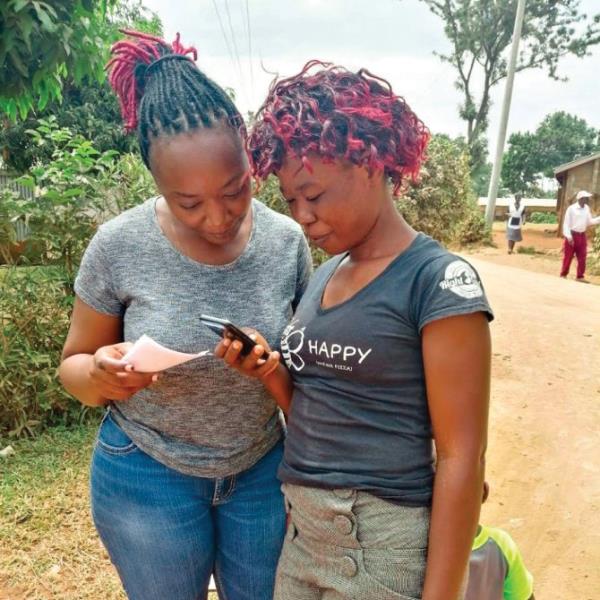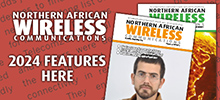25 January 2021

Thousands of patients of community health care workers in rural Africa can use a basic tool on their mobile phones – with no internet connection – to provide feedback on their care anonymously, easily and inexpensively.
The system was developed by researchers from Cornell Tech, Manhattan, part of Cornell University.
In remote areas of Africa and India, where a single doctor might serve 10,000 people, many rely on community health care workers who visit their homes and act as intermediaries between doctors and patients.
This model is considered effective and has been adopted around the world, there have been cases of poor treatment, say researchers.
Efforts to improve care and accountability involved collecting data from caregivers. A study by the Cornell researchers sought to create a system allowing care recipients to offer feedback of their own.
Fabian Okeke, a doctoral student in information science at Cornell, said: “If you’re providing services for a pregnant mother in rural Kenya, how is the pregnant mother going to say whether the service is helping her? “We wanted to somehow bridge this gap – not just in the research literature but in community health. So, we started thinking about ways to integrate the voices of care recipients and to do it in a way that is scalable.”
The researchers chose an unstructured supplementary service data (USSD) system – commonly used by owners of prepaid mobile phones to check their balances. They chose USSD because it offered anonymity, unlike short message service texting; and because it is far less expensive than a call-based system.
With USSD, users enter a series of numbers into their phones, prompting questions about their experiences at the health care centres. Since most Kenyans already own mobile phones and are familiar with USSD, it was easy for them to adopt, the researchers said.
Mr Okeke said: “Often when people think about interventions in developing nations, they think, ‘Let’s go build an app from scratch or a completely new tool,’ but many times you can go back and tap into existing infrastructures.
“People are already used to placing calls and texting – I think the innovation here is that you can go back to those mundane technologies and transform them into something else.”
The researchers deployed the tool for seven weeks, training five care workers who, in turn, trained care recipients. For example, users who were visited by health care workers could dial *384*888# on their phones to provide feedback, which took less than two minutes. Users who visited community health care centres could dial a different series of numbers to offer feedback.
Users dialled in to answer a series of questions 495 times, with an error rate of less than 1%. Around 70% of the responses were positive, 17% negative and 13% neutral.
The researchers also conducted focus groups with patients and caregivers to gauge their opinions.
Mr Okeke said: “We found that people were pretty enthusiastic about using USSD for providing feedback. “It was a way to empower them to communicate how they felt about the services they received.”
Even the health care workers – who at first feared the feedback could be used maliciously against them – seemed pleased with the results, the researchers found.
“Initially, when we started the design process, health workers said this could be a tool that becomes a punishment,” Okeke said. “But most of the feedback was positive, so it’s validating the hard work that they’re doing, but it’s also holding them accountable. We heard things from care workers like, ‘Now it’s on me to combine both the positive and the negative to understand where I can improve my services.’”
“The potential impact is thrilling. Technological interventions, when designed in the right way, can help address some of the complex health problems we have in the world.”
Medic Mobile, a non-profit health tech company, is in the process of incorporating the USSD system into its software toolkit, which is used by health care organizations across Africa. The system showed promising results in a recent study and will soon be expanded by Medic Mobile, that collaborated on the research and works with more than 20,000 health care workers across 14 African countries.
The research paper was co-authored with Nicola Dell, assistant professor of information science, and Medic Mobile researchers Beatrice Wasunna, Mercy Amulele and Isaac Holeman. The research was partly funded by the Children’s Investment Fund Foundation UK.







